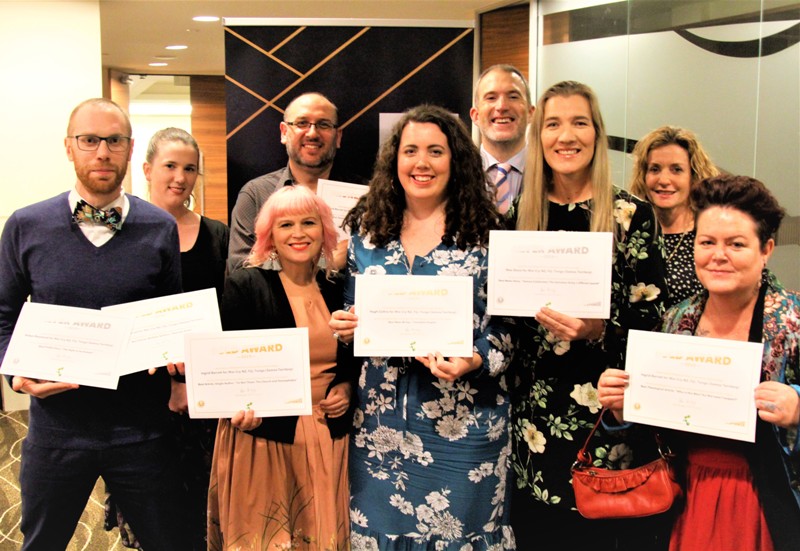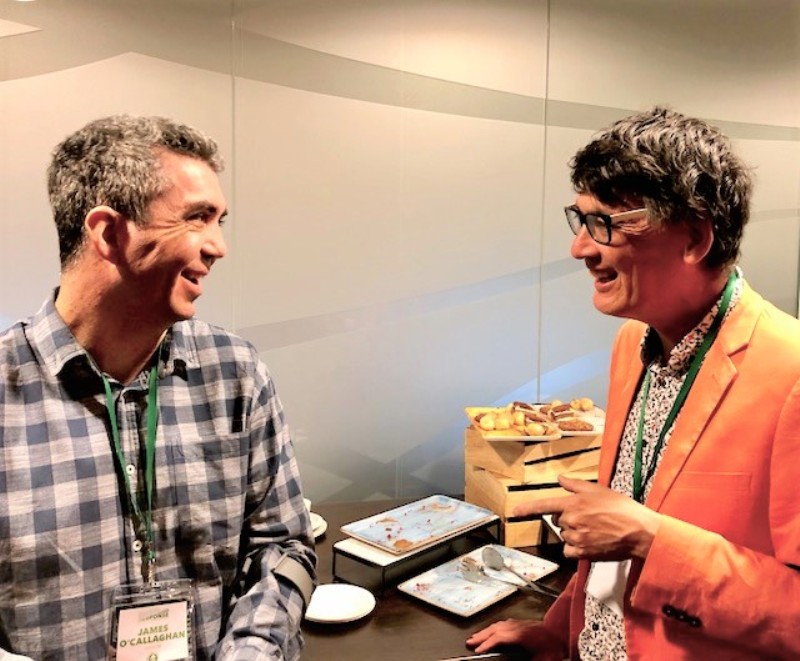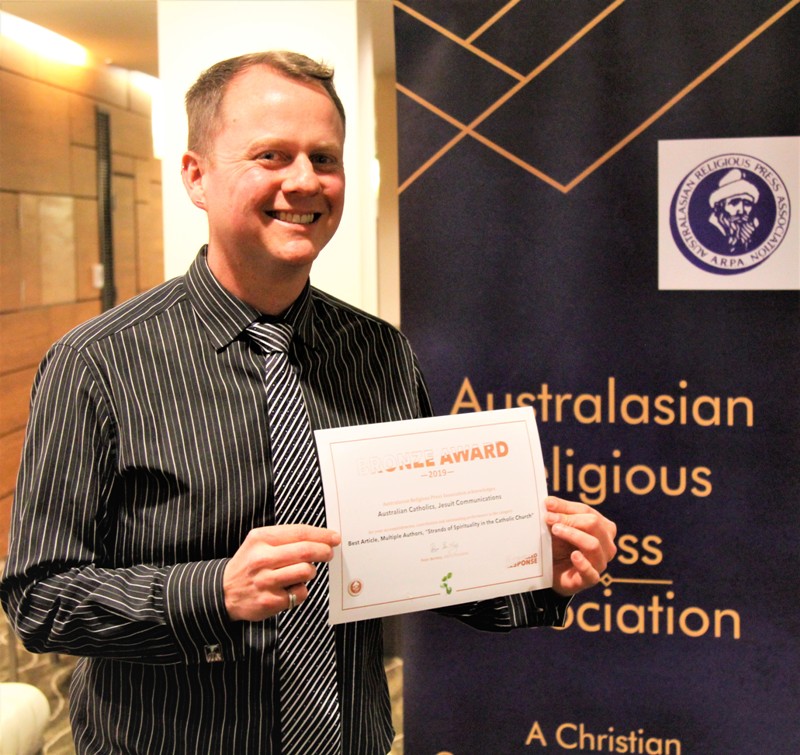
Australia is in such a fortunate position, where we have many personal freedoms in our society.
These freedoms have been hard won over centuries of fighting, conflict and resolving religious conflicts. We also live in a democracy. To us, democracy and 'freedom' are assumed to be one and the same; but a short perusal of the 'facts' will show that some democracies have freedoms similar to ours; but some do not.
We also live in a society based on the Judeo-Christian tradition, but even though it may not be written in our Constitution, in practice we have separated all our governance from all our religious practices (and we have enshrined the right for our citizens to practice any religion, as long as they obey the secular Laws of the Land).
However, in our modern world, there are democracies whose citizens cover all the World's major religions including Islam and not all Christian-based democracies afford their citizens the same freedoms that we have (Zimbabwe and Fiji are two current examples).
Because of these complications, in this reflection, I am writing about 'freedoms' in our society, and not refer to the general fraught term 'democracy'.
Although there have been many 'home grown' acts of terrorism in various countries, these seem to have been instigated by individuals with a 'grudge'. We feel threatened at the present time because of recent acts of co-ordinated terrorism that are squarely aimed at our free Western culture. We are naturally more frightened of 'the unknown' than those within our own culture, and the terrorists play on this emotion – one of their aims is to create 'terror' in order for the society to collapse: the loss of life may not be their prime objective.
The first step in combatting this fear, is to learn about others' views so we know what they are thinking and why. The second step, as Thomas Jefferson has reported to have said, is to be vigilant.
Over the recent past we have witnessed a young Nigerian Muslim, Umar Farouk Abdulmutallab who became radicalised and attempted to bring down an international flight from Holland to Detroit. We have seen similar dastardly acts in France, Belgium, Germany, England, Australia and late last year in Morocco, Swedish young women killed, one decapitated and the videos sent to their family. This is only the tip of the iceberg.

Out in the open
"The Islamist" is an autobiographical journey of a young man, Ed Husain, born in England to a family originally from Pakistan, who became radicalised by association with Islamist extremists. In his book, he tells the story of how this happened, and how he eventually denounced radicalism and Islam.
He explains that those wanting to bring down the very system that allows them to engage in the political process do so on an ideological basis, that once in power, the long-term aim is to destroy that very system of freedom. As a guest writer for the Sydney Morning Herald, Ed Hussain summarised his thoughts again. ("The Islamist: Why I Joined Radical Islam in Britain, What I Saw Inside and Why I Left" (03 May 2007) by Ed Husain is published by Penguin Paperback)
There are fundamentalist Muslim people who interpret Muslim teachings to such an extreme that they reject the modern development of city/state governments, including our current Western political systems and those that are being developed by Muslim countries.
In their interpretation, religion and government are not separate; and they also see it as their mission to convert the whole world to Islam. Their current activities seem to have been precipitated by their perception that America's incursions into the Middle East (starting with what we see as the liberation of Kuwait) are acts of aggression against Islam.
Because in their view, religion and politics are the same, they view their aggression against Westerns societies as a religious one they talk about countering the attacks by the 'Nations of the Crusades' (Some of these differences in attitudes are explained in yet another book, "The Crisis of Islam, Holy War and Unholy Terror" (2003) by Bernard Lewis published by Phoenix Paperback).
Islamist and Islam
These groups are called 'Islamist'. But note, this is 'not' the same as the term 'Islam' in that it does 'not' refer to the majority of Muslims who peacefully practise one of the many variations of the religion generally called Islam. Although the meaning has shifted, as often occurs with use of language, the current usage refers to a 'supporter or advocate of Islamic fundamentalism'.
Irfan Yusuf, an Australian-born lawyer, tells a similar story in an interview on ABC National Radio ("Life Matters" program) on January 13th, 2010. (He also documents his story in his book: "Once Were Radicals: my years as a teenage Islamo Fascist" by Irfan Yusuf, published by Allen and Unwin)
In the chapter 'Return to England' in his book, Ed Husain provides a very detailed account of how innocuous organisational names functioned as fronts with much nastier aims. Of more concern is the challenge to our hard-won free society, with its system of its smooth functioning with its unwritten rules of fair play, honesty and neighbourly behaviour.
These Islamist organisations have used the young people who have been raised in the free Western societies, and who are thus familiar with the workings of the political and social systems and who speak the language without an accent.
They therefore will not attract attention as a 'stranger' would, when taking rules and regulations to their breaking point, and also to use the 'repressed minority' sentiments and regulations to advantage 'over and against' the general population in a host of both private and public situations.
We live in tenuous times.

.jpg) Dr Mark Tronson is a Baptist minister (retired) who served as the Australian cricket team chaplain for 17 years (2000 ret) and established Life After Cricket in 2001. He was recognised by the Olympic Ministry Medal in 2009 presented by Carl Lewis Olympian of the Century. He mentors young writers and has written 24 books, and enjoys writing. He is married to Delma, with four adult children and grand-children. Dr Tronson writes a daily article for Christian Today Australia (since 2008) and in November 2016 established Christian Today New Zealand. Dr Mark Tronson’s Press Service International in 2019 was awarded the Australasian Religious Press Association’s premier award, The Gutenberg.
Dr Mark Tronson is a Baptist minister (retired) who served as the Australian cricket team chaplain for 17 years (2000 ret) and established Life After Cricket in 2001. He was recognised by the Olympic Ministry Medal in 2009 presented by Carl Lewis Olympian of the Century. He mentors young writers and has written 24 books, and enjoys writing. He is married to Delma, with four adult children and grand-children. Dr Tronson writes a daily article for Christian Today Australia (since 2008) and in November 2016 established Christian Today New Zealand. Dr Mark Tronson’s Press Service International in 2019 was awarded the Australasian Religious Press Association’s premier award, The Gutenberg.
Mark Tronson's archive of articles can be viewed at http://www.pressserviceinternational.org/mark-tronson.html

Dr Mark Tronson - a 4 min video
Chairman – Well-Being Australia
Baptist Minister 45 years
- 1984 - Australian cricket team chaplain 17 years (Ret)
- 2001 - Life After Cricket (18 years Ret)
- 2009 - Olympic Ministry Medal – presented by Carl Lewis
- 2019 - The Gutenberg - (ARPA Christian Media premier award)
Gutenberg video - 2min 14sec
Married to Delma for 45 years with 4 children and 6 grand children